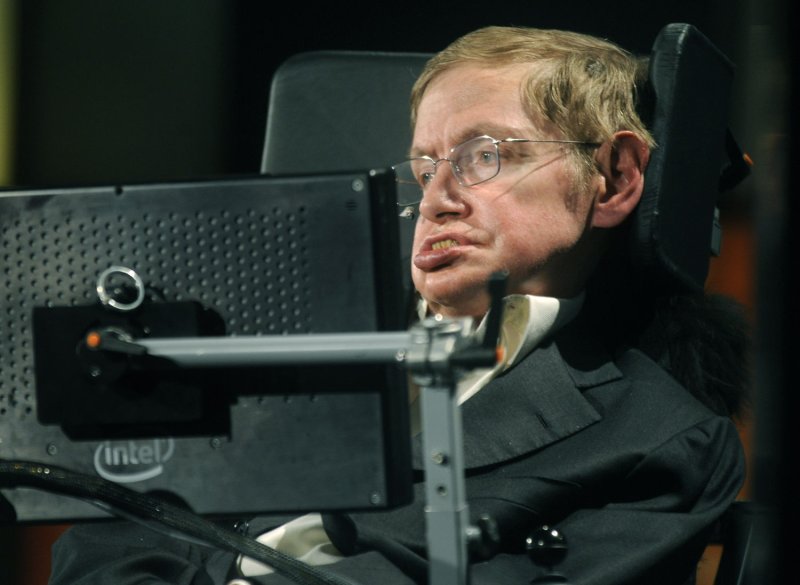Crowds lined up at the California Institute of Technology Tuesday night to hear a lecture by famed cosmologist Stephen Hawking. A second auditorium and a lawn with large video screens were necessary to handle the overflow crowd, according to SPACE.com.
Hawking began his lecture, titled The Origin of the Universe, by reciting an African creation myth before moving on to the question "Why are we here?"







